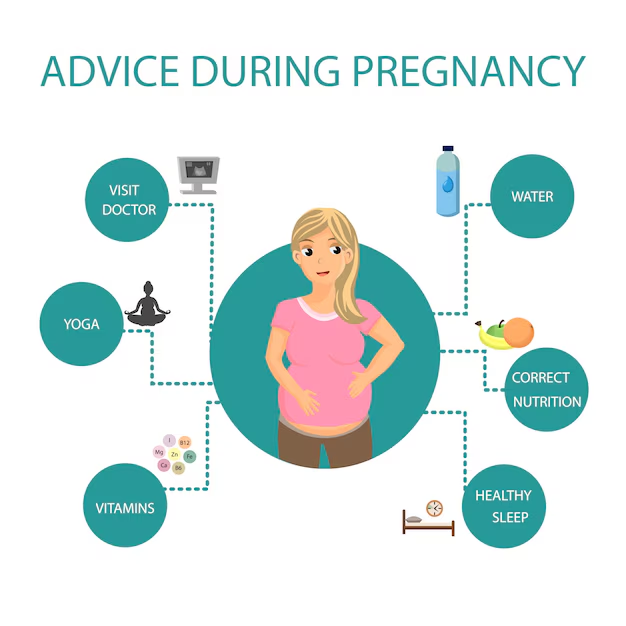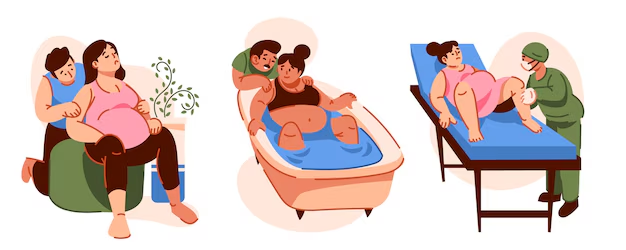Common Health Complications During Pregnancy: What You Need to Know

Pregnancy is an exciting time, but it can also come with some unexpected challenges. While most pregnancies progress smoothly, some women may experience health complications. It’s important to be aware of the potential risks and know how to address them. In this blog, we’ll explore some of the most common health complications during pregnancy, their symptoms, and how they can be managed.
1. Gestational Diabetes
Gestational diabetes is a type of diabetes that develops during pregnancy, usually around the 24th to 28th week. It occurs when the body cannot produce enough insulin to regulate blood sugar levels, resulting in high blood sugar.
Symptoms:
- Excessive thirst
- Frequent urination
- Fatigue
- Blurry vision
Management:
- Diet and Exercise: A healthy diet and regular exercise can help control blood sugar levels.
- Monitoring Blood Sugar: Regular blood sugar monitoring is essential.
- Medications: In some cases, insulin injections may be required to keep blood sugar levels under control.
Gestational diabetes usually resolves after delivery, but it can increase the risk of type 2 diabetes later in life, so postpartum monitoring is important.
2. Preeclampsia
Preeclampsia is a condition characterized by high blood pressure and signs of damage to organs, typically the kidneys and liver, after the 20th week of pregnancy. If left untreated, preeclampsia can lead to serious complications for both the mother and baby.
Symptoms:
- High blood pressure
- Swelling of the face and hands
- Protein in the urine
- Severe headaches
- Sudden weight gain
Management:
- Blood Pressure Monitoring: Regular checks of blood pressure are necessary.
- Medications: Blood pressure medications or other interventions may be used to control the condition.
- Delivery: In severe cases, delivering the baby early may be necessary, as the only cure for preeclampsia is delivering the baby and placenta.
Early diagnosis and treatment can prevent severe complications, including eclampsia (seizures) or organ damage.
3. Miscarriage
A miscarriage, also known as spontaneous abortion, is the loss of a pregnancy before the 20th week. It is a heartbreaking experience for many women, though it is relatively common and often beyond anyone's control.
Symptoms:
- Vaginal bleeding or spotting
- Cramping or lower abdominal pain
- Passing tissue or fluid from the vagina
Management:
- Rest and Observation: Depending on the severity of symptoms, a doctor may advise bed rest or observation.
- D&C (Dilation and Curettage): In some cases, a procedure may be necessary to remove remaining tissue from the uterus.
Though a miscarriage can be emotionally challenging, most women go on to have healthy pregnancies in the future.
4. Hyperemesis Gravidarum
Hyperemesis gravidarum is a severe form of morning sickness that causes persistent nausea and vomiting, often leading to dehydration and weight loss. It typically occurs in the first trimester, but it can last throughout the pregnancy.
Symptoms:
- Severe nausea and vomiting
- Inability to keep food or fluids down
- Weight loss
- Dehydration
Management:
- Hydration: Ensuring proper hydration is crucial, and fluids may be administered intravenously if necessary.
- Medications: Antiemetic medications can help reduce nausea.
- Dietary Adjustments: Eating small, frequent meals and avoiding certain triggers can help alleviate symptoms.
While hyperemesis gravidarum can be difficult, with proper treatment, most women recover and have a healthy pregnancy.
5. Preterm Labor
Preterm labor occurs when regular contractions begin before 37 weeks of pregnancy, leading to the risk of premature birth. Premature babies are at higher risk for health complications due to underdeveloped organs.
Symptoms:
- Frequent contractions
- Back pain or pressure in the pelvis
- Abdominal cramping
- Fluid leakage
Management:
- Rest and Monitoring: Bed rest and monitoring in a hospital may help prevent further progression of labor.
- Medications: Tocolytics may be given to stop contractions, and corticosteroids may be used to help the baby's lungs develop more quickly.
- Early Delivery: If preterm labor is inevitable, the healthcare team will be prepared to manage the baby’s birth and provide necessary support for prematurity.
Early intervention is key to minimizing the risks to both the mother and baby.
6. Anemia
Anemia during pregnancy is common, particularly in the second and third trimesters. It occurs when the body does not have enough red blood cells to carry oxygen to tissues, which can lead to fatigue and weakness.
Symptoms:
- Fatigue
- Pale skin
- Dizziness
- Shortness of breath
Management:
- Iron Supplements: Pregnant women are often advised to take iron supplements to boost red blood cell production.
- Dietary Changes: Eating iron-rich foods, such as leafy greens, beans, and lean meats, can help manage anemia.
- Vitamin C: Consuming foods high in vitamin C can improve iron absorption.
Most cases of anemia can be managed effectively with diet and supplements.
7. Urinary Tract Infections (UTIs)
UTIs are common during pregnancy due to hormonal changes that affect the urinary tract. If left untreated, UTIs can lead to kidney infections and complications during labor.
Symptoms:
- Pain or burning while urinating
- Frequent urge to urinate
- Cloudy or strong-smelling urine
- Lower abdominal pain
Management:
- Antibiotics: UTIs are typically treated with antibiotics that are safe during pregnancy.
- Hydration: Drinking plenty of water can help flush out bacteria from the urinary tract.
- Prevention: Urinating after intercourse and wiping from front to back can help prevent UTIs.
Proper treatment can prevent further complications, and UTIs can generally be cleared up quickly with the right care.
8. Ectopic Pregnancy
An ectopic pregnancy occurs when a fertilized egg implants outside the uterus, usually in a fallopian tube. This is a medical emergency, as the pregnancy cannot continue, and the growing embryo may damage the surrounding tissue.
Symptoms:
- Sharp pelvic pain
- Vaginal bleeding or spotting
- Dizziness or fainting
Management:
- Medical Intervention: In most cases, medication (methotrexate) is used to stop the pregnancy from progressing.
- Surgery: In some cases, surgery may be required to remove the ectopic pregnancy.
If detected early, an ectopic pregnancy can be treated effectively, but it can have serious consequences if left untreated.
Related Articles

Baby development at 6 weeks

Mental Health During Pregnancy: Taking Care of Your Emotional Well-Being

Baby development at 34 weeks

Baby development at 25 weeks

How Hormonal Imbalances Can Affect Your Period

Baby development at 37 weeks

First Trimester Screening Tests: What You Need to Know

Preparing for Labor and Delivery